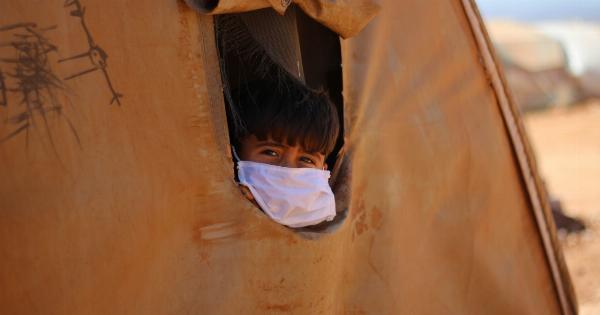Child viruses can be very common and they tend to spread easily in children who do not have strong immune systems yet. While some viruses are mild and can be treated with home remedies, others can be more severe and require medical attention.
The good news is that there are various ways to handle child viruses and prevent their spread. Here are some effective tips:.
1. Encourage good hygiene practices
Handwashing is the first line of defence against the spread of child viruses. Encourage children to wash their hands regularly and properly, especially after using the washroom, coughing, or sneezing.
Use warm water, soap, and teach them to scrub for at least 20 seconds.
2. Promote healthy eating
A healthy diet plays an important role in boosting the immune system. Encourage children to eat a variety of colourful, nutrient-rich fruits and vegetables, whole grains, and lean proteins to help their bodies fight off viruses.
3. Ensure good rest and sleep
When children are sleep deprived, their immune systems can weaken, making it easier for viruses to take hold. Make sure children get enough sleep and rest to keep them healthy.
4. Stay home when sick
If your child is sick, it’s important to keep them home from school or daycare to prevent the spread of germs to others. Also, avoid exposing them to other sick people.
5. Get vaccinated
Vaccines are one of the most effective ways to prevent the spread of viruses. Make sure your child receives all recommended vaccines, including the flu vaccine.
6. Treat symptoms
There is no cure for viruses, but you can treat symptoms to make your child more comfortable. Use over-the-counter fever reducers for high temperatures and pain relievers for headaches or body aches. For coughs, try honey and lemon in warm water.
If symptoms worsen or persist, consult your child’s healthcare provider.
7. Keep hydrated
Encourage children to drink fluids such as water, tea, soup, or electrolyte drinks to keep them hydrated. Staying hydrated can also help thin out mucus and clear congestion.
8. Ensure cleanliness of surroundings
Viruses can easily spread through shared objects, such as toys, doorknobs, and phones. Keep surfaces and objects regularly disinfected and encourage children to avoid sharing personal items with others.
9. Don’t hesitate to seek medical attention
If your child experiences severe symptoms such as high fever, difficulty breathing or dehydration, seek medical attention right away. Early treatment can help prevent complications and speed up recovery time.
10. Stay informed
Stay up-to-date with the latest information on child viruses from reliable sources such as healthcare providers and public health agencies. This can help you stay prepared and avoid misinformation that could harm your child.






























